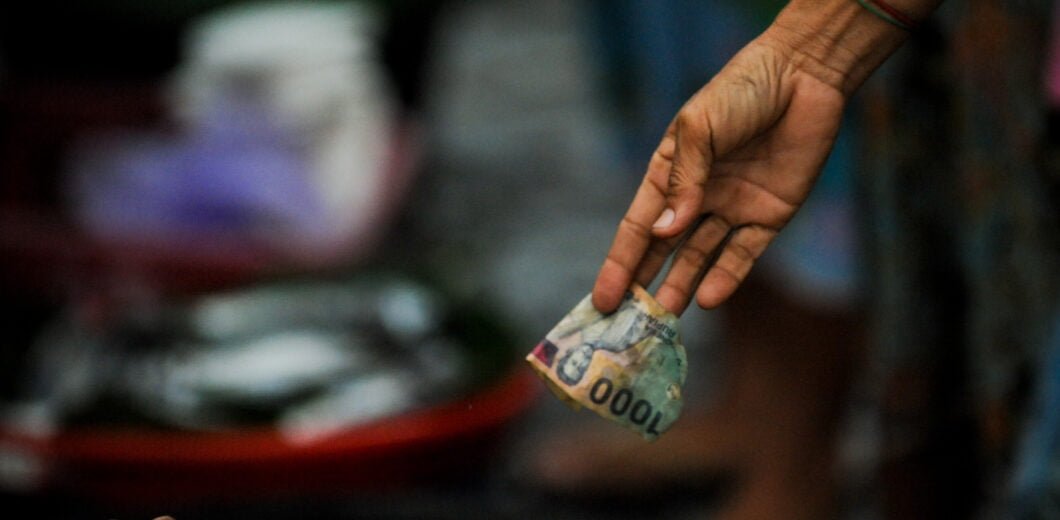The continuous underfunding of the Joint United Nations Programme on HIV/AIDS has now trickled down to the Joint Programme’s governance. It is threatening the meaningful involvement of civil society in shaping the Joint Programme. The NGO Delegation reveals that multiple unsuccessful attempts have been made to engage UNAIDS and its funding Member States regarding the financial shortages.
UNAIDS often emphasizes the importance of including civil society organizations in designing, shaping, and implementing global programs. This is a function the NGO Delegation serves in their capacity as part of the wider UNAIDS PCB. Therefore, any decision not to meet the NGO Delegation’s financial needs runs contrary to the Joint Program’s values for civil society and defeats the purpose of the delegation.
Furthermore, it directly threatens the global goal of achieving zero new infections by 2030 according to Xavier Biggs of Jamaica AIDS Support For Life, a delegate and a member of the NGO Delegation’s UBRAF working group: “Generally, the cutting of funds inevitably leads to the deliverables of any program not being met. With just six years before the global aim to achieve or significantly reduce new infections by 2030, this is a very sensitive time for the NGO Delegation not to achieve its deliverables,” he says.
At its core, the NGO Delegation represents the interests of the civil society to UNAIDS. The bulk of its work is to bring to UNAIDS’ attention some of the most urgent matters that need to be considered for formulating global HIV/AIDS-related policies and interventions. However, for the last six years, the NGO’s Delegation’s capacity to meet its core objectives has been gradually crumbling due to ongoing financial shortfalls.
The funding and governance of the NGO Delegation is managed by the Communication and Consultation Facility (CCF). The CCF’s budget is allocated every two years through a contract between Civil Society Organizations (CSO) and UNAIDS. With global inflation steadily rising over the last few years, CCF’s budget has been stretched too thin. There has been a consistent shortfall, leading to extreme cost-cutting tactics. Subsequently, these shortfalls hinder the NGO Delegation from achieving its goals.
“CCF plays a significant role in our operations. It manages to share our information across regions while ensuring accessibility and inclusivity. So, a shortfall in CCF’s budget severely impacts the deliverables of the Delegation. We are already experiencing major delays in our delivery as it stands,’’ says Biggs.
This has sparked concerns among the delegates as the situation directly impacts their intentions. According to delegate Martha Clara Nakato of Sexual Reproductive Health and Rights (SRHR) Alliance Uganda, the budgetary constraints that the NGO Delegation has been subjected to can be likened to censoring the voices of the communities.
“Communities are at the heart of the Joint Programme as established by UNAIDS. Our voices can be regarded as one of UNAIDS’ core strengths as it is the only UN program with an NGO representation in its governing body. So, allowing budgetary cuts and shortfalls to disrupt the communities’ participation demonstrates an odd willingness to eliminate the voice of communities. This cannot be allowed! UNAIDS and other relevant stakeholders need to ensure our participation is upheld,” says Martha.
It seems Martha’s fears are rolling out in real-time. In the 2024-2025 CCF contract negotiations, a fiscal host organization determined that 450,000 USD is required to fully fund the NGO Delegation’s activities. However, UNAIDS could not meet those requirements and only provided 340,000 USD for the third time.
This means that, once again, the NGO Delegation is faced with a shortfall of 55,000 to 58,000 USD this year. For that reason, many of the NGO Delegation’s activities that serve as platforms for expression for civil society will not be financially supported.
One of these tools is the annual NGO Report for the PCB of UNAIDS. This report explores burning topics identified and deemed valid by civil society. The findings of this extensive study are then analyzed, documented, and presented at the PCB meeting at the end of each year. The production of this report involves onboarding a consultant to research and write the report, estimated at 17,500 USD. Another important aspect of this project is the translation of the report into Arabic, Chinese, Russian, and Spanish for accessibility and inclusivity. An amount of 6,500 USD is required to cover the translation costs.
Delegate Gastón Devisich from Fundacion Huésped in Argentina and a member of the PCB NGO Report working group confirms that UNAID’s inability to fund the production of the report is denying the civil society space in the global HIV/AIDS conversations. “The development of the NGO Report requires ongoing consultations with members of the civil society. As they are all over the globe, we must use various tools and methods, which come at a cost. If we cannot cover that cost, civil society’s contribution to the global HIV response will be excluded,” he adds.
In addition to the PCB NGO Report, other activities of the NGO Delegation that UNAIDS doesn’t financially support for this year include the translation of two PCB Summary Bulletins written by the NGO Delegation to express constituencies of their achievements during the PCB.
There is also no funding for voluntary support in various regions. This is usually in the form of stipends paid to CSO representatives who voluntarily participate in workgroup meetings of the NGO Delegation. Such people include members of civil society groups that inform the Thematic Segments of the PCB meetings and focus group discussions on collating input for the NGO Report.
In yet another attempt to retain civil society’s right to participate in the global HIV/AIDS response, UNAIDS, and its funding Member States are urged to devise resolutions for the financial shortages.
